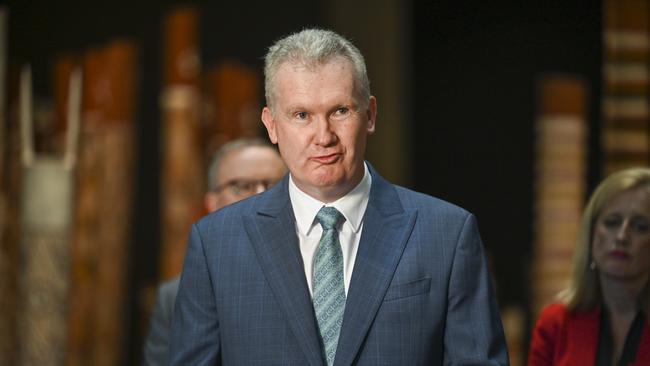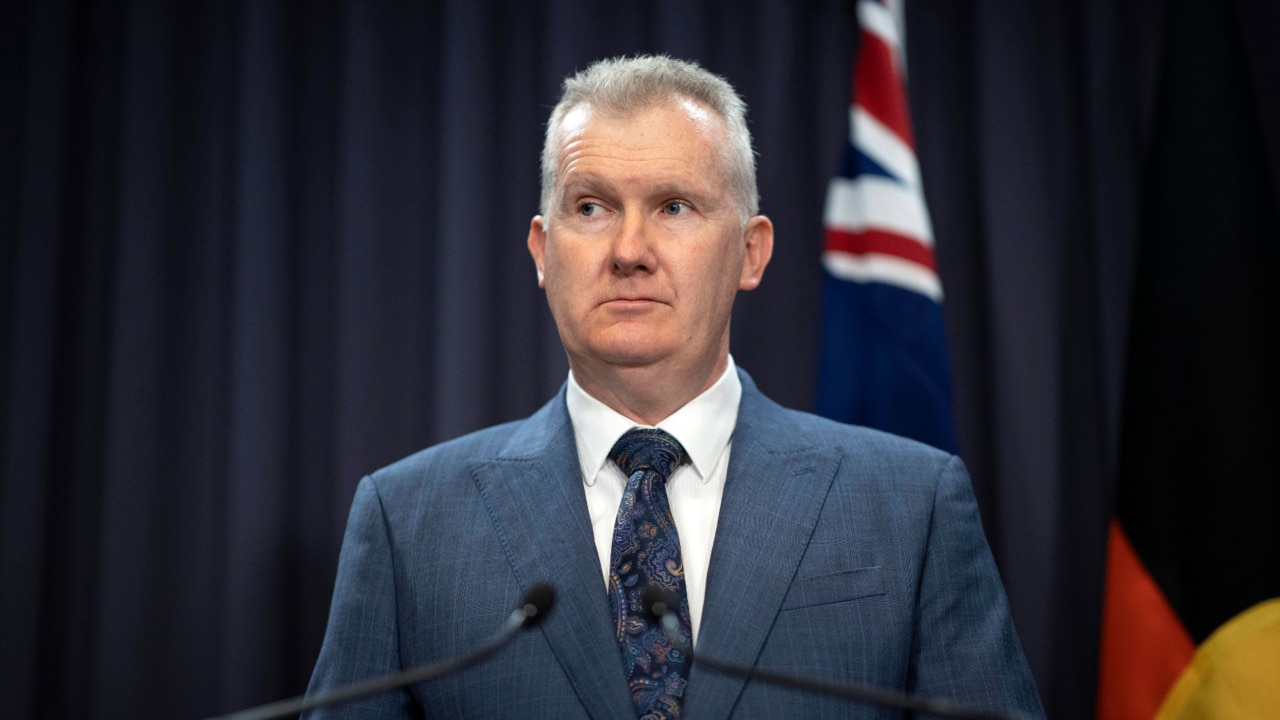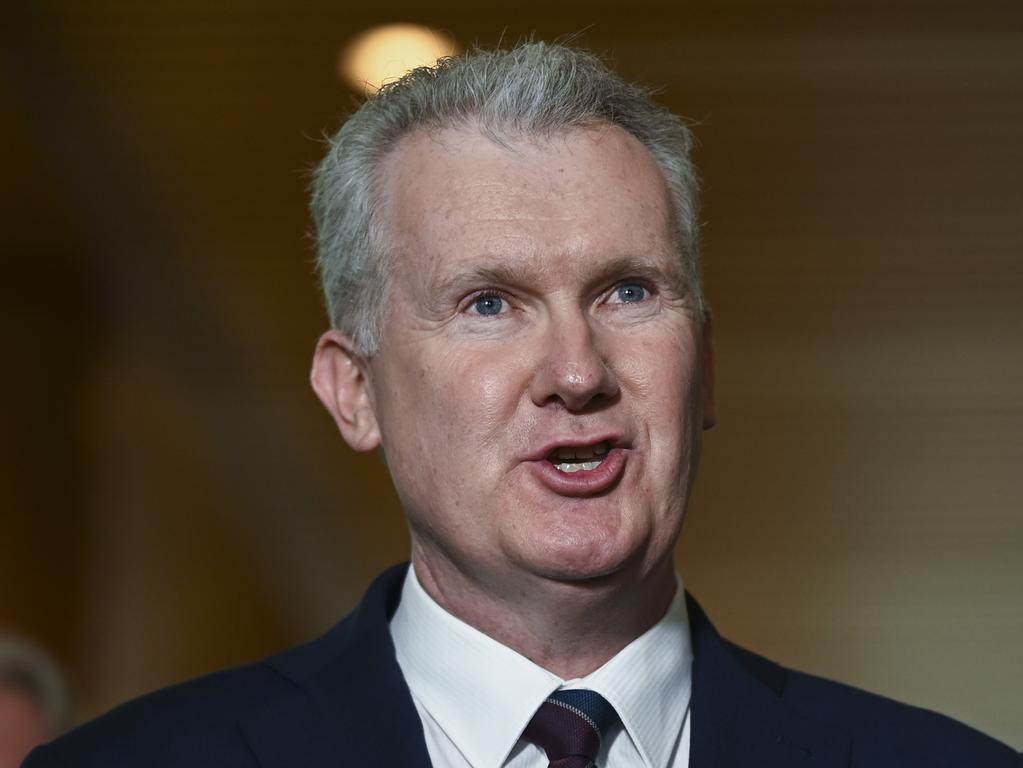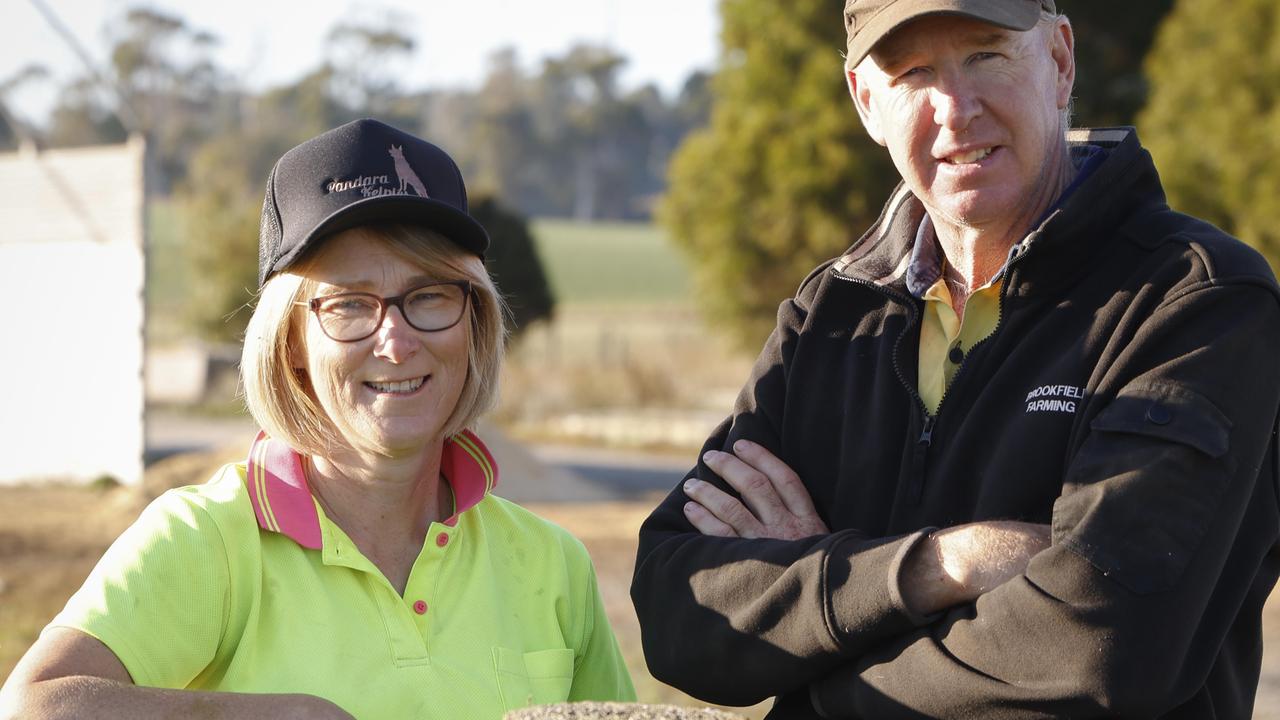Tony Burke agrees to IR law changes, with casual employment, labor hire concessions
Tony Burke has agreed to significant changes to his employment and labour hire laws, as Labor seeks to blunt employer attacks and win Senate crossbench support.

Workplace Relations Minister Tony Burke has agreed to significant changes to Labor’s proposed casual employment and labour hire laws, as the government seeks to blunt employer attacks and win Senate crossbench support for its industrial relations reforms.
The government concessions on casuals won the support of the hospitality industry and the labour-hire amendments are designed to address mining industry concerns that many service contractors would be inadvertently caught by Labor’s Closing Loopholes Bill.
But the amendments are unlikely to persuade business representatives to call off their multimillion-dollar campaign to defeat the bill, with some employer figures privately saying the flagged amendments were inadequate.
Following discussions with the Australian Hotels Association, Mr Burke will remove the proposed ban on employers misrepresenting permanent employment as casual to ensure that heavy penalties not apply to companies that mistakenly misclassify an employee.

The government will also make amendments to address concerns that casuals could not be employed with regular patterns of work if they wanted to be. It will confirm that it is possible for a person to work regular hours and still meet the definition of casual employee.
The amendments came as employers ramped up criticism of the original proposals with recruitment agency Adecco declaring they risked opening a “Pandora’s box” that would impose a “massive compliance burden” on the company’s operations across Australia.
But the government concession was hailed by AHA chief executive Stephen Ferguson, who said Mr Burke’s commitment to amendments was “good news for both casuals and employers alike”.
Mr Ferguson said the originally proposed casual provisions had been diabolical for employers but the amendments meant “we can work with this bill”.
Mr Burke told The Australian that the government would make further amendments to ensure that service contractors were excluded from the labour-hire changes.
“The government made a clear policy decision that we did not want service contractors who were providing a service other than effective labour hire to be captured by the labour hire loophole sections of the Act,” he said.
“There have been some constructive recommendations – in particular from West Australian companies and organisations – suggesting how the language of the bill might be further refined. I’ve been very grateful for those contributions. This doesn’t change the government’s objective; it simply makes sure that the objective is met without unintended consequences.”
Mr Ferguson said many hospitality workers preferred casual employment, given the 25 per cent loading and the flexibility to refuse shifts.
“Our concern with the original bill was that employers would no longer be able to provide systemic regular casual employment to those workers who were happy with it,” Mr Ferguson said.

“The amendments which have been committed to provide much more certainty and fairness for workers and employers and can be chalked up as a win for both.”
“They strike the right balance – and we thank minister Burke for taking the time to listen to our concerns and taking actions to address them.”
Mr Ferguson said the commitment to remove the civil-penalty provision relating to misrepresentation of casual employment would ensure “any mistakes, disputes or questions will be able to be dealt with by the independent umpire, the Fair Work Commission”.
Under the government amendments, deliberate misrepresentations and sham casual arrangements remain unacceptable. Protections against the deliberate misuse of casual employment will be retained, including dismissing an employee in order to engage them as a casual and knowingly making false statements to convince a person to agree to be casual.
The Australian understands that the government accepts there have been concerns that the bill could mean casuals could not be employed with regular patterns of work if they wanted to be.
While the government rejects the criticism, it will amend the bill to clarify that no one single consideration, such as a regular pattern of work, can determine if someone is a casual.
It is understood the amendments will also confirm that it is possible for a person to work regular hours and still meet the definition of casual employee.
Mr Burke is expected to argue that the changes will provide additional certainty and clarity for employers and employees on how the definition works.
He will argue that the core test is simple – whether or not there is an absence of a firm advance commitment to continuing and indefinite work.
The government says the additional considerations in the bill are only there to help assess whether an employee meets this simple core test.
The Senate inquiry into the bill will hold a further hearing on Tuesday, with Qantas and BHP to give evidence.
Both companies will press their concerns about the changes but senators are expected to grill executives over the use of labour hire.
The ACTU has called for the changes to be further strengthened in favour of workers, accusing major companies including BHP, Qantas and Uber of exploiting legislative loopholes for commercial gain.








To join the conversation, please log in. Don't have an account? Register
Join the conversation, you are commenting as Logout